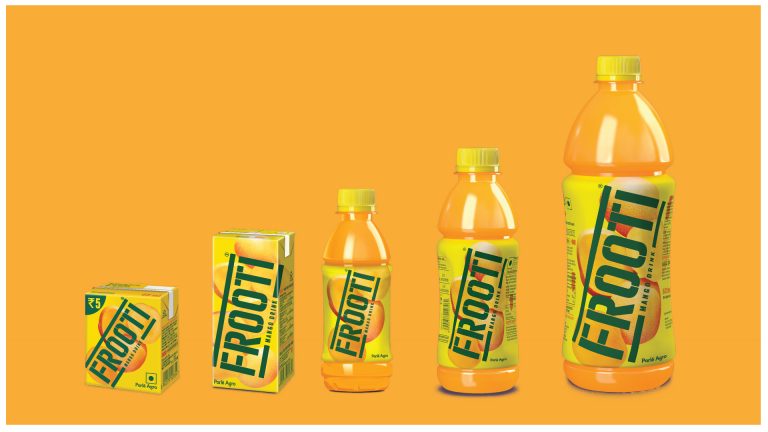Pediatric Nutritionist
Welcome Parents and Caretaker to the world of infants/babies and young kids. Every parent is naturally concerned for their baby’s health and well-being. A little soul in our hands, parents will attempt their best to keep their baby in the best health. But it is not an easy task to take care of an infant. Parents need to give the infant an essential amount of nutrients so the overall development of the baby is optimal.
A pediatric nutritionist has an important role in ensuring the health of children by prescribing to their different nutritional needs. Every young life has different needs as per their age to ensure their optimal growth and development. A nutritionist provides professional guidance on their diet, breastfeeding, formula feeding, solid foods, essential nutrients, protein, and the finest solid for the baby as per the age (Fruits, Vegetables, Proteins, Carbohydrates).
Importance of Nutrition in Baby’s Health
A baby has rapid growth in their early stages. Their nutritional requirement subsequently increases in the newborn and infant.
Infant and newborn growth and development depend upon the right balance of nutrition. The right amount of nutrition will help in strengthening the immune system. It also supports brain development, the building of strong bones, development of muscles, organs, and tissues.
A Pediatric nutritionist will ensure that a newborn and infant have a proper diet, including necessary vitamins, minerals, proteins, carbohydrates, and fats for optimal growth and development.
Breastfeeding: Breastfeeding is the best way to provide sufficient nourishment to the baby’s growth and development in his first six months. Breast milk is rich in antibodies, enzymes, nourishment, and other components that a newborn needs to enhance the immune system and defend against infections. Breast milk contains protein, lipids, carbohydrates, and water. After introducing solid food to the baby, a mother should continue breastfeeding the child. In addition, breastfeeding also strengthens the mother-child emotional bond.
Formula Feeding: Another way of feeding the new born is formula feeding. This formula milk is specially designed with iron, calcium, vitamin D, and other necessary vitamins and minerals. It offers a suitable option for mothers who are unable or choose not to breastfeed.
Each new born is special and the requirements of the new born change according to age. The formula feeding lacks the unique antibodies and immune-boosting factors found in breast milk. So it is essential for a parent and caretaker to take the advice of a pediatric nutritionist to ensure the optimal growth and development of the new born. By analyzing the current condition of the new born, maternal health, lifestyle, and individual circumstance, a paediatric nutritionist can offer guidance to parents in making informed choices that best suit the needs of both the baby and the family.
Solid food: Breast milk is the primary source of nutrition. After six months we can add solid food as the secondary mode of nutrition. Mashed fruits and vegetables should be introduced to the baby and the diet should progress into more complex food. At first, single ingredients should be introduced to identify potential allergies or sensitivities.
Qua nutritionists will help you decide on an appropriate food and portion after consulting the parent or caretaker of the infant. We ensure that the nutritional requirements of the newborn are met.
Appropriate first food can be mashed bananas, purred sweet potatoes, purred peas, and mashed avocado.
Recommended Food that Babies Can Eat
For the growth and development of the babies in their infancy stage here are some recommendations by Qua Nutrition to fulfill their nutrition requirements.
Vegetables: Eating vegetables is important for the newborn as they provide essential nutrients like vitamins (A, C, K), minerals (potassium and folate), and fiber (helps in bowel movements and digestive health) for growth and development. It helps in improving immune support, vision development, brain development, and overall growth.
Qua nutrition recommended first food for newborns such as purred sweet potatoes, vegetables, peas, and carrots. These vegetables offer a variety of nutrients and different flavors and textures.
Fruits: Fruits provide essential vitamins (like C and A), minerals, and fiber for growth and development. It is recommended to try one fruit at a time. Before trying any new fruit, we should take a gap of 2-3 days to watch for any signs of allergies or sensitivities.
Qua Nutrition’s recommended first fruits for babies are mashed bananas, pureed apples, and mashed avocados. They are easy to digest and the child is introduced to a variety of flavors and textures.
Protein: Protein is essential as it helps in the growth and development of babies. It also helps in developing the immune system, brain, digestive system, energy production, muscle development, and tissue repair.
Qua Nutrition recommends yogurt, cheese, eggs, and fish for the newborn as these solid foods are rich in Protein.
Carbohydrates: Carbohydrates are essential for babies as it is the source of energy and play an important role in the growth and development and overall growth of the babies.
Qua Nutrition recommends grains, cereals, fruits, vegetables, and legumes for the newborn.
 Essential Nutrients in Baby Food
Essential Nutrients in Baby Food
Protein: It helps in the growth and development of babies. It also helps in the immune system, brain development, digestive system, energy production, muscle development, and tissue repair.
Iron: It helps in oxygen transport, brain development, and energy metabolism. It prevents babies from the iron-deficiency anemia.
Vitamin D: It helps in the cognitive development of babies and it also helps in mood regulation, cell growth, muscle function, immune function, and bone health.
Omega-3 Fatty Acids: It helps in the brain, eye health and development, immune function, heart health, and neurological function and have anti-inflammatory properties. It is important for baby’s development during pregnancy and infancy
Calcium: It helps in bone and teeth formation, muscle function, nerve transmission, blood clotting, and enzyme Function. As babies move towards solid foods, calcium-rich food such as dairy products, fortified cereals, and leafy green vegetables in their diet can support their calcium needs.
What Foods to Avoid
It is necessary for the parent or the caretaker to know which food should be avoided as they pose a risk of foodborne illness, food allergies, risk of choking and other health concerns. A kid’s nutritionist can give their professional guidance on nutrition and dietary habits.
Qua Nutrition recommends that the parent or the caretaker should avoid food such as honey, cow’s milk, whole nuts, shellfish, seafood, soy products and large chunks of food for children who are below one year old.
How Kids Nutritionist can Help Your Kids in Growing Healthy
A kid’s nutritionist has a very important role in supporting kid’s health by providing expert guidance on nutrition, promoting healthy eating habits, informing parents or the caretaker about any health concern and any risk that may arise due to lack of nutrition or excess of nutrition.
In Qua Nutrition, we examine the child’s nutritional needs and we consider factors like age, growth pattern and activity level while examining the child. Based on the examination, we develop a personalized diet plan, balanced meals and snacks that provide essential nutrients for growth and development.
We promote eating habits among kids and educate parents or the caretaker about healthy eating habits. We help expand your child’s palate if he or she is a picky eater. We helps in prevention and management of health conditions and support growth and development. We educate and empower both the kid and the parent.









